“Just as my son is imprisoned, I am imprisoned outside”
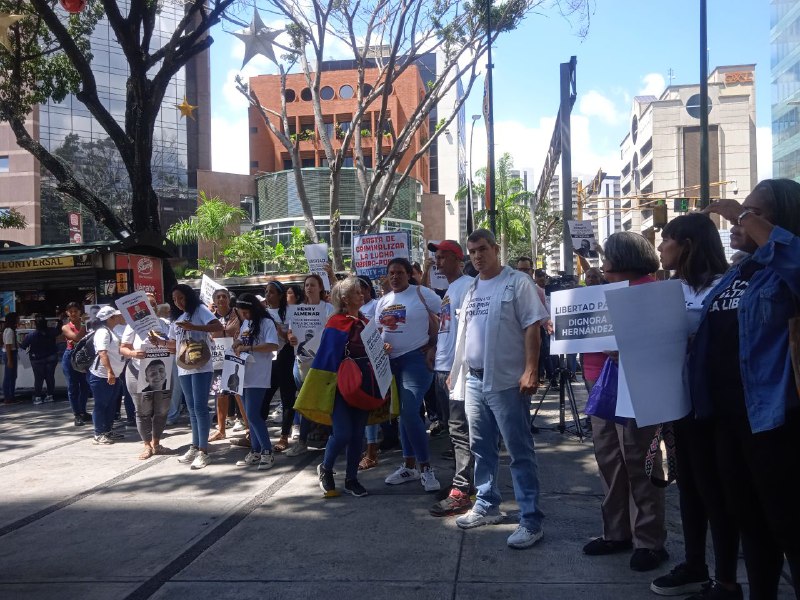
«How can I cry for something my son didn’t do? “My son is innocent,” says the mother of a political prisoner detained in the context of the post-election protests in Venezuela. The woman, whose 31-year-old son has remained detained since August, does not want to be identified in the media for fear of reprisals. She was able to see her son recently, she comments with a sad smile to another of the mothers. She is a little relieved because they accepted some of the medications she brought him: her son you are developing a skin disease due to the unhealthy conditions in which he is held, one of the most frequent complaints after mass arrests in the country since the elections on July 28.
The woman does not give details of her case, nor does she mention her name or that of her son or the place where he is detained. He is afraid, an emotion that remains latent in relatives with political prisoners. Caution and prudence govern their actions: they go in groups to rallies, they do not allow themselves to be photographed by the media or they make sure that officials identify them. Others, however, are not afraid to report what is happening. Having a son, nephew or husband detained is a terrible thing and they are already experiencing it.
With or without fear, family members have organized to support each other. Through WhatsApp groups they exchange information, plan to protest and even print shirts with the photo of their detainees to demand that they be released. Many have reported thatOur family members have lost weight due to the lack of food in detention centers. In prisons they do not receive the food they bring with great sacrifice, so their relatives do not eat or drink enough water. They also do not have access to water to wash themselves and even share a one-liter bottle among several inmates,
Only women with a direct link to the inmate, such as mothers, grandmothers, aunts or wives, are allowed visits, which take place approximately every 15 days. These visits only last 10 minutes, as happens in the Aragua Penitentiary Center, known as Tocorón. In some places, such as El Rodeo 1, in the Zamora municipality, near Guatire, the visit lasts 25 minutes maximum and only if they do not talk about matters that the custodians consider prohibited, such as the state in which the detainees are found. Every time the visit ends, family members feel as imprisoned and helpless as those left behind bars.
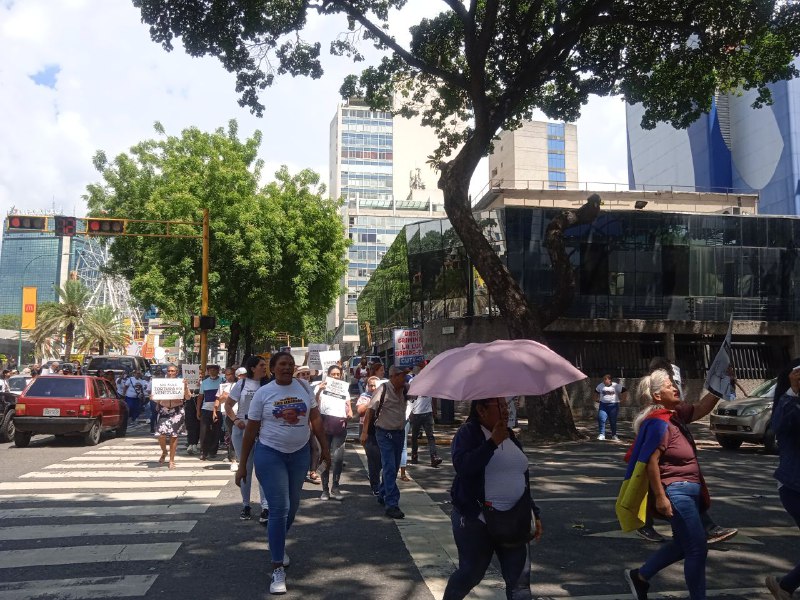
After 11:00 am they gather in front of the Ministry of Penitentiary Service, in Las Mercedes Photo: El Nacional
This October 18, a group of family members organized to gather in front of the Ministry of Penitentiary Service, in Las Mercedes. Many did not come out of fear, others refused to speak or testify. The purpose of the demonstration was to inform Minister Julio García Zerpa, appointed by Nicolás Maduro in July, a list with your requests. With this they seek to improve the conditions in which the detainees are held, as well as demand that their human rights be respected.
They request that inmates be allowed to receive packages with food, drinking water and medical supplies and that more frequent and longer visits be allowed. The requests also include cultural or sports activities in detention centers, access to drinking water, medical reviews by health professionals and that the detainees be allowed to go out to the patio to sunbathe daily, since many of them have reported that they are taken out to the patio for only 6 minutes every 15 days.
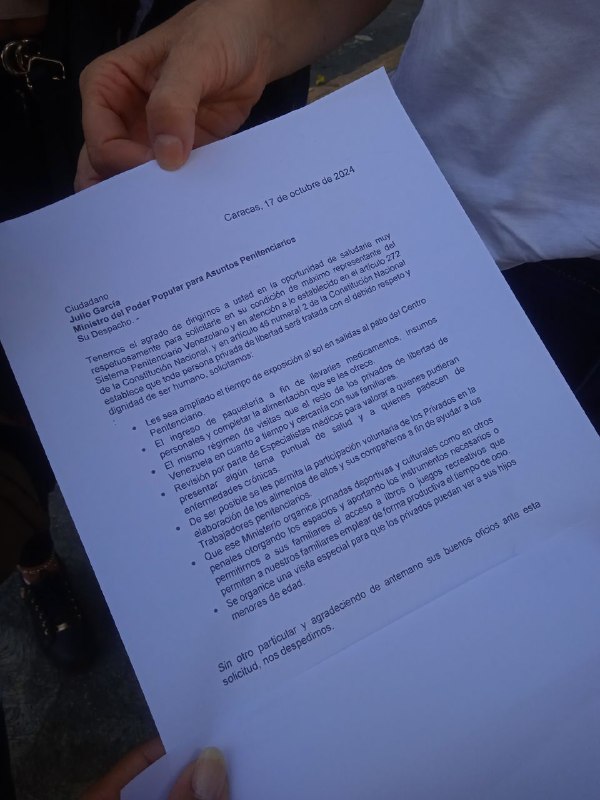
List with requests Photo: El Nacional
They are innocent, they are not terrorists
After 11:00 in the morning, relatives arrive outside the ministry. They do it together, dressed in white, with the Venezuelan flag as a cape or with t-shirts that show off the face of their political prisoner. The arrival is accompanied by a chant that they sing loudly: “They are innocent, they are not terrorists.” The majority carry signs with the names of the detainees, distributed without any order so that it is not really known which political prisoner they are related to. This way they will avoid retaliation. Some are afraid to speak; Others, seeing themselves supported by the group, approach the media to tell their case.
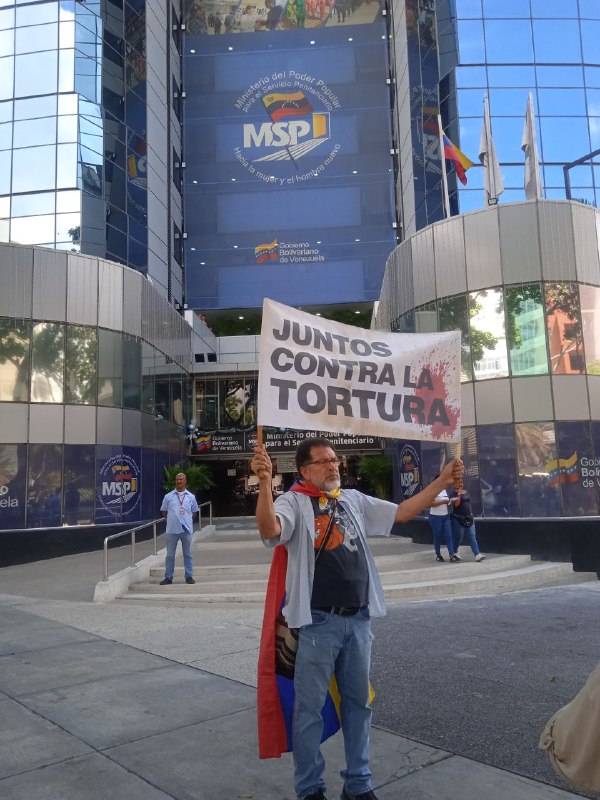
Some are not afraid to report Photo: El Nacional
Among the latter is Mildred Barillas, wife of Gilber Barillas, who has been detained for four months in El Rodeo 1. Barillas spent weeks without contact with his partner. When he finally got to see him last Sunday, she left the detention center distraught. «My husband has lost weight, he is a hypertensive person with heart problems. Rodeo 1 is hell, they are far from the world, they have cement beds with a mat that they share between two. They spend 24 hours with a shared latrine in the same cell. I see them on Sundays for 25 minutes, that time is not enough. “We have no contact with them,” he denounces.
In his opinion, the situation of the inmates has worsened since July 28, the day of the presidential elections. «There are too many people detained. I get up at 4:00 in the morning so I can go see my husband. Every day we live with the worry of not knowing if they ate, slept or if they are okay. Thinking differently is a crime in this country«, he asserts. Since the elections they are 1,936 detainees, including 68 teenagers, 160 soldiers and 238 women, according to Foro Penal figures, updated on October 14, 2024.
Fighting for rights is not terrorism
Yusmery García, 41 years old, is not afraid to speak. His son, Luis García, 20, is being held in Tocorón, where he was arbitrarily detained on August 6 after The police will set up a trap for him through social networks. García, from the town of Cumanacoa, in the state of Sucre, is dedicated to printing shirts and mugs in La Hoyada, Caracas, a job with which he sought to save to pay for his studies in the capital. The police ordered him a couple of shirts and when he gave them the location to make the delivery, they took him into custody.
“My son’s defender is also afraid of being thrown out, so my son has no defense and his file is flawed. They won’t let me give him food or water. He told me days ago that he felt kidnapped; They treat him badly, the food is deplorable, the water is yellow. If you buy the medicine, they receive it but it is not delivered. We are bringing them serum so they can endure. If they continue like this, We are going to take them out of there directly to the cemetery”, he expresses.
García affirms that the detainees are malnourished and that the experience of being detained has been so strong that they are even asking their relatives to take to the streets to protest.
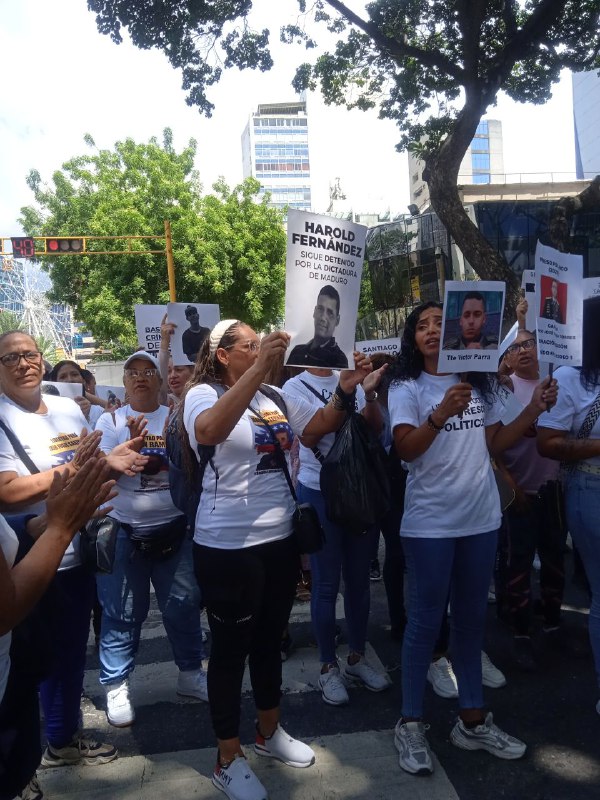
The relatives told what the detainees are experiencing and ask for better conditions Photo: El Nacional
García, as a relative of a political prisoner, has no doubts: his son is innocent. After they took him to Zone 7 on August 6, she did not see him again until fifteen days later. This week he had another visit that was worse than all the others. “It was more worn out. It lasted 10 minutes, I saw it behind glass without being able to touch it and I have to speak as quickly as possible. He is malnourished, weak and very depressed. Crying, he asked me for help; and I feel with my hands tied because we have really gone everywhere. We have not had a response. Nothing,” he confesses.
With the situation in the country, García has had to ask for help to cover the expenses involved in constantly being in Caracas doing paperwork for his son’s release. “We mothers are in the streets. We find no way to help our children, who are innocent. The police are the ones who incite hatred, taking advantage of innocent young people and workers,” he said.
There is no Christmas with political prisoners
In the case of Yajaira Gutiérrez, 44 years old, her son David Samuel Gutiérrez, 21 years old, was detained from his home in Ciudad Caribia, north of the Caracas valley. Student by day, motorcycle taxi driver by night, his son has been a Christian for 8 years and is also not afraid to report what is happening. They took him away on August 22, at approximately 1:00 in the morning. The only thing they told her was that they were taking him away for inciting hatred through messages sent via WhatsApp. She is not aware of it: at no time was she shown evidence of the crime.
“If they don’t show me the evidence it’s because they don’t have it,” he says. After he was arrested, he was detained for three days in Maripérez. From there they took him to Zone 7, where he stayed for fifteen days until they transferred him to Yare and from there to Tocorón. They did not notify him of these transfers, So Gutiérrez joined a group of mothers to go to Tocorón together. When they were not allowed to pass, they gathered at the outside bars and began shouting in protest. Only then did the authorities come out to tell them that yes, their children were there, although they did not give them proof of this.
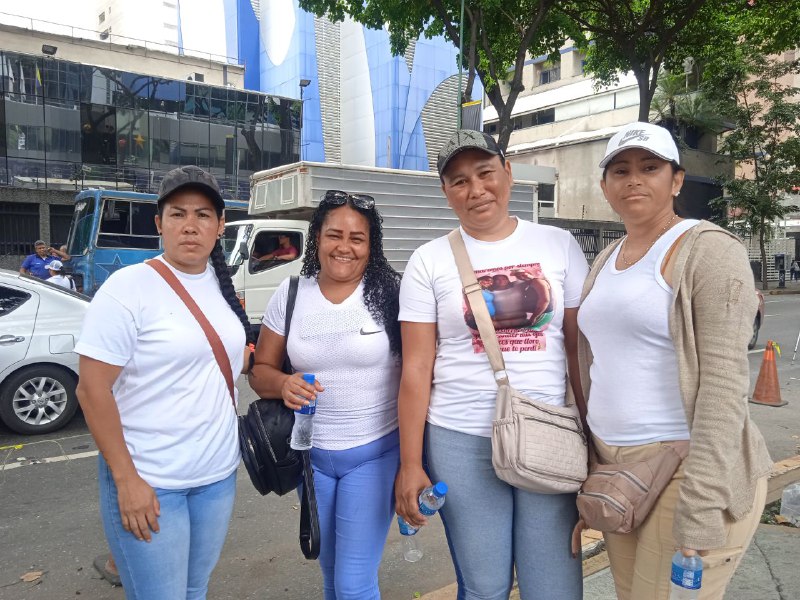
Yajaira Gutiérrez along with other mothers of political prisoners Photo: El Nacional
Three days passed until she finally received a phone call where they not only confirmed where her son, who suffers from asthma, was, but also scheduled her for a visit. When he was able to see him, Gutiérrez He said that they had hurt his hand as punishment for screaming in his cell for help. He had an asthma attack and couldn’t breathe. The only response he got was the order for him to put his hand out through the bars to hit it. He also told him that they give them breakfast at 2:00 pm and then they give them dinner, completely cold and in poor condition, after 7:00 pm. The meat looks green, with worms, without flavor. Many are decompensated, as they prefer to go hungry than eat that food.
Yajaira did not want to ask him details about how he was hurt or why. The visit was also occurring in an environment of coercion and repression: through glass, without physical contact, with custodial guards watching every word. If he said something that denounced his situation in the center, the guards would make a sign on the glass to keep him quiet. “Just as my son is imprisoned, I am imprisoned outside.”“says Gutiérrez, also the mother of four girls, the oldest 12 years old and the youngest 4 years old. She has to leave them alone in the house to be able to ask and fight for her son’s freedom. “Imagine that the police come to my house and find them alone, another problem,” she says distressed.
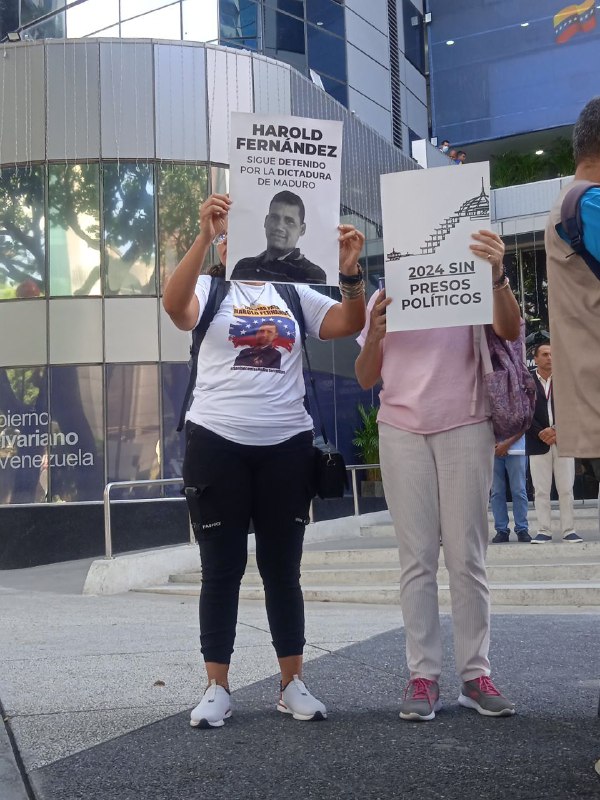
Relatives organized to come with posters and t-shirts Photo: El Nacional
In the case of Gutiérrez, his son was able to tell him, in a brief phone call – which must have lasted four minutes because they cut him off early – that in Tocorón they are asking inmates to sign a blank sheet of paper. The request is made by the custodians on behalf of the public defenders, thus seeking to convince them to sign. No one has accepted.
“Those who go to trial are given a completely blank sheet of paper, asking them to sign it. They don’t tell them what it is for or what they will write in it, They just lie and say that a public defender sent them. The detainees themselves showed solidarity with each other and agreed not to sign anything. As soon as he told me that, the phone call was suddenly cut off: they didn’t want him to tell me the truth about what was happening inside. “My son is tired and so am I, we can’t take it anymore,” he said.
Independent journalism needs the support of its readers to continue and ensure that the uncomfortable news they don’t want you to read remains within your reach. Today, with your support, we will continue working hard for censorship-free journalism!
